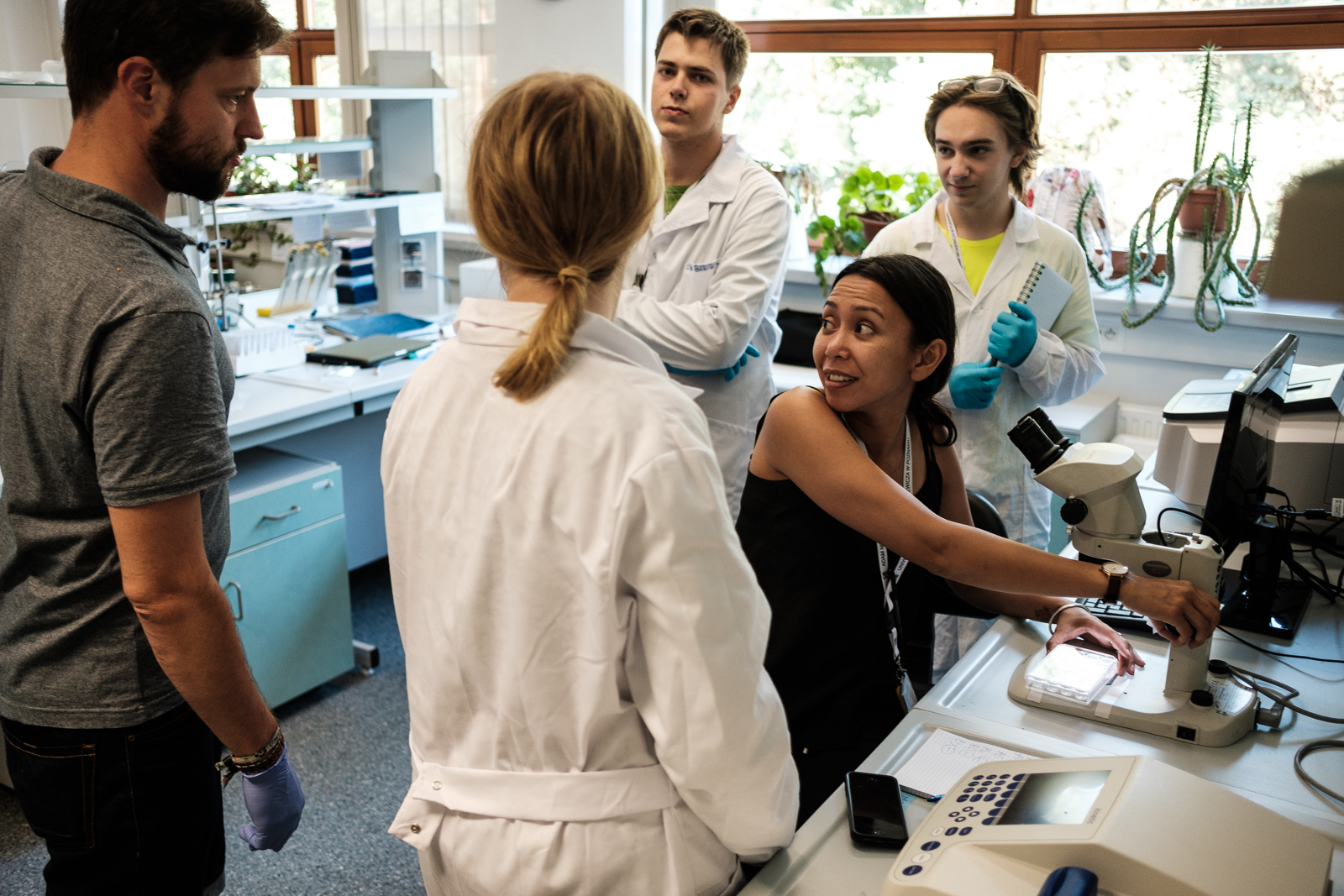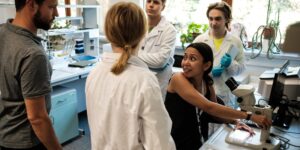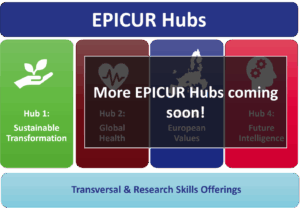7 Projects Selected
We are pleased to announce the seven innovative projects selected for funding under the EPICUR Seed Funding Call 2024. This initiative generated significant interest across the EPICUR Alliance, attracting 17 applications from over 120 researchers, with a total funding request of over €1.5 million. The proposals address current topics such as Future Intelligence, European Values, Global Health and Sustainable Development.
Each application underwent a thorough evaluation process, with two independent scientific experts reviewing and ranking the proposals based on the criteria established in the Seed Funding Call. The EPICUR Evaluation Committee then assessed the top-ranked projects against the available budget at each institution (a total of €625,000) and proposed a list of successful applicants. After this careful selection process, the EPICUR Executive Board awarded funding to seven outstanding projects for a total of €443,570 representing a success rate of 41%.
On behalf of the EPICUR Seed Funding Executive Board and the nine partner universities, we congratulate all successful applicants! These projects mark the collaborative spirit of EPICUR, fostering interdisciplinary research and strengthening academic partnerships across Europe.
The selected projects are:
n-SECBO
The project examines neo-securization of borders by focusing on its implications for the core value of a “Europe without borders”. Through an interdisciplinary lens in Social Sciences, three regions at the border between Germany, France, Denmark and Poland will be compared to assess the effect of re-bordering on European integration. By means of three research workshops and a summer school, using an approach of citizen science which involves cross-border actors and students, the objective is to create an EPICUR network in the field of Border Studies and European Integration applying further for external grant(s).
REGENERATE
REGENERATE will bring together seven interdisciplinary early-career researchers from four different EPICUR universities and one external research partner to investigate how the EU can harmonize its ambitious goals of achieving an energy transition phasing out fossil fuels, while bolstering regional supply chains through an on shoring of production and resource extraction, while at the same time re-naturalizing domestic ecosystems. Regional differences in population density, income, and environmental protection standards can lead to social resistance and environmental injustice.
SusPhotoPoly
Photoresponsive materials change their properties upon irradiation, and can be used e.g. as sunlight-driven actuators. Typically, such materials are derived from fossil-based components, as research today has its focus on green chemistry and requires more work to incorporate sustainable practices to manufacture desired products and ultimately minimise and eliminate the waste materials generated, here , we want to develop the first sustainable photoresponsive polymeric materials using building blocks entirely derived from biogenic sources : castor oil, lignin, and aminoacids. The light sensitivity will be provided by peptide-derived molecular photoswitches – hemiperazines – recently discovered by the lead partner. Thus, by virtue of the above-mentioned unique properties, we strongly believe that the practical and chemical value of this novel skeleton of the polymers will be extremely interesting, for example, as an excellent scaffold for design and development of new functional materials applicable in state-of-the-art applications with particular focus on sensors and electronic technologies.
NAMASUTE
This project intends to synergistically gather four institutes along their complementary research efforts and expertise on nano-optics and magnonics with potential applications in energy-efficient quantum technologies and telecommunications, by the organization of scientific workshops, followed by exchange and recruitment of students demonstrating the benefits of such a joint effort to properly prepare the ground for applications to EU calls.
GAME
Cooperating in projects on agent-based modelling and developing a serious game-based learning experience enables connecting and training of students, stakeholders, and partner institutions of EPICUR’s network in sustainable and resilient forest value chain management. We will contribute to the Future Forests excellence cluster application, hold simulation workshops for risk management, and organize an international competition motivating students to apply their learnings in a serious online game.
DEPMODE
As a diagnostic category, depression does not capture a single disease entity. It includes a heterogeneity of conditions that are not adequately distinguished, undermining research into distinct causes and novel interventions. To parse this heterogeneity, psychiatry requires clear distinctions among the variety of signs and symptoms. This project aims to conceptually distinguish among the heterogeneity of mood disturbances in depression based on qualitative interviews and conceptual analysis.
DILPBLAB
Large parts of the world population lack the resources for a dignified life. At the same time, the world’s affluent use huge amounts of resources which threatens the planet’s ecological boundaries. Partners in this project have researched minimum access to resources for a dignified life, human impacts on resource use and planetary boundaries, and how redistribution can enable wellbeing for all within ecological boundaries. Through intensive partner exchange, expert workshops for students, and a review paper, the project will lay the groundwork for a joint grant proposal.




